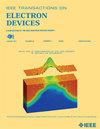基于双层次深度神经网络预测和粒子群算法的半导体制造数据驱动器件设计框架
IF 2.9
2区 工程技术
Q2 ENGINEERING, ELECTRICAL & ELECTRONIC
引用次数: 0
摘要
由于现代制造的复杂性,优化集成电路(ic)中的器件仍然具有挑战性。像计算机辅助设计(TCAD)这样的传统方法需要大量的人工干预。与此同时,基于机器学习(ML)的方法提供了自动化,但在整个制造工作流程中经常与现实世界的制造变化作斗争。这项工作提出了一个由三个关键部分组成的循环优化框架:用于设备参数预测的逆模型,作为TCAD代理的正演模型和加权粒子群优化(PSO)算法。在包括制造变化的真实制造数据的训练下,代理模型更好地反映了实际的制造条件。与TCAD仿真相比,训练后的正演模型的计算速度提高了近40000倍。此外,通过利用逆模型约束优化和完全可调的权重机制,该框架能够精确控制优化强度和解的可靠性,确保可调整的权衡。它还支持针对不同电气特性指标的可定制重量调整,允许用户根据需要优先考虑特定特性。总的来说,这项工作为平衡权衡和优化半导体器件设计提供了一种有效而灵活的工具。本文章由计算机程序翻译,如有差异,请以英文原文为准。
Data-Driven Device Design Framework for Semiconductor Manufacturing With Dual-Hierarchy DNN Prediction Scheme and PSO
Optimizing devices in integrated circuits (ICs) remains challenging due to the complexity of modern manufacturing. Traditional methods like technology computer-aided design (TCAD) require extensive human intervention. Meanwhile, machine learning (ML)-based approaches provide automation but frequently struggle with real-world manufacturing variations across the full fabrication workflow. This work proposes a loop optimization framework composed of three key components: an inverse model for device parameter prediction, a forward model as a TCAD surrogate, and a weighted particle swarm optimization (PSO) algorithm. Trained on real manufacturing data that includes manufacturing variations, the surrogate model better reflects actual fabrication conditions. Compared to TCAD simulations, the trained forward model achieves a computational speedup of nearly 40000 times. Furthermore, by leveraging the inverse model to constrain optimization and a fully adjustable weighting mechanism, the framework enables precise control over optimization intensity and solution reliability, ensuring adjustable tradeoffs. It also supports customizable weight adjustments for different electrical characteristic metrics, allowing users to prioritize specific characteristics as required. Overall, this work provides an efficient and flexible tool for balancing tradeoffs and optimizing semiconductor device design.
求助全文
通过发布文献求助,成功后即可免费获取论文全文。
去求助
来源期刊

IEEE Transactions on Electron Devices
工程技术-工程:电子与电气
CiteScore
5.80
自引率
16.10%
发文量
937
审稿时长
3.8 months
期刊介绍:
IEEE Transactions on Electron Devices publishes original and significant contributions relating to the theory, modeling, design, performance and reliability of electron and ion integrated circuit devices and interconnects, involving insulators, metals, organic materials, micro-plasmas, semiconductors, quantum-effect structures, vacuum devices, and emerging materials with applications in bioelectronics, biomedical electronics, computation, communications, displays, microelectromechanics, imaging, micro-actuators, nanoelectronics, optoelectronics, photovoltaics, power ICs and micro-sensors. Tutorial and review papers on these subjects are also published and occasional special issues appear to present a collection of papers which treat particular areas in more depth and breadth.
 求助内容:
求助内容: 应助结果提醒方式:
应助结果提醒方式:


